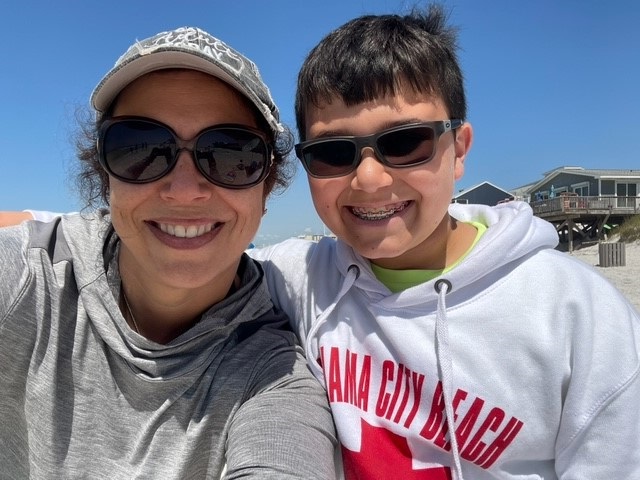Blog
“In practice, I think there is a fine line between overtreating and undertreating breast cancer patients, and DCIS is squarely in that gray zone. Prior to DCISionRT, all DCIS patients got radiation. As an academic institution, we value and pride ourselves on following evidence-based literature and recommendations. DCISionRT is backed by strong evidence. That makes it easy to incorporate. And it is an important tool to use as a multidisciplinary group to determine if we should recommend radiation or not, because we are finding out that some women don’t actually need radiation.”
Troy Bremer, PhD; Julie Margenthaler, MD, FACS; and Chirag Shah, MD discuss the evaluation and use of DCISionRT in real-world setting, the resulting changes in practice of precision medicine, and the introduction of DCISionRT with novel residual risk subtype.
“In my follow-up appointment with the radiation oncologist, he reviewed the DCISionRT test results and concluded that ‘these test results are based on your biology and there is no need for you to have radiation’. So, I was done with treatment! The doctors will continue to monitor me and if my cancer comes back, we can still consider other options at that time.”
“Choose to be your own advocate. Get as much information as you can. Then with all the information in hand, you can decide with your family, physicians and God what is best for you. For me, the DCISionRT test was critical in helping me make a personalized decision.”
“The most gratifying part of my job is taking care of breast cancer patients. They have a fight in them. They want to get better, so they really listen. My initial conversations with my patients typically take about an hour to explain their particular type of breast cancer and the various treatment options available to them. I caution them that they are going to hear stories from a multitude of people who are going to share their experiences and give ‘advice’. I let them know that their cancer is specific to them, and their situation may be different. My patients deserve a personalized diagnosis and treatment plan.”
Troy Bremer, PhD; Pat Whitworth, MD; Chirag Shah, MD; Anne Peled, MD; and Karen Barbosa, DO, FACOS discuss the recently published randomized SweDCIS data and how they are utilizing DCISionRT in clinical practice.
Dr. Bremer kicked off the meeting with a discussion of the current challenge of overtreatment with radiation therapy for ductal carcinoma in situ (DCIS). “Specifically, about 80% of DCIS patients treated with breast conserving surgery (BCS), and no other adjuvant therapy, don’t recur. Yet, 80% - 90% of DCIS patients are treated with other adjuvant therapy, including radiation therapy (RT), following BCS due to a lack of confidence in who actually needs adjuvant therapy. This overtreatment substantially impacts quality of life for women with DCIS and results in a high cost of radiation to the health system.”
Under the standard treatment of DCIS, clinicians have historically used clinicopathology factors, such as age, size of tumor, grade, and margin status to determine low risk factors. Under the most recent National Comprehensive Cancer Network (NCCN) guidelines, if the patient and physician view the individual risk as ‘low,’ some patients may be treated by excision alone. But how do physicians detect low risk?
Genomics are a key part of the breast surgeon’s ability to offer personalized breast cancer care to treat appropriately without causing unnecessary side effects and optimize aesthetic and functional outcomes. Breast cancer surgeons are often the first point of contact for breast cancer patients and a trusted source for guidance on overall care. DCISionRT can provide valuable information and play an important role in the shared decision-making process.
Genomics are a key part of the breast surgeon’s ability to offer personalized breast cancer care to treat appropriately without causing unnecessary side effects and optimize aesthetic and functional outcomes. Breast cancer surgeons are often the first point of contact for breast cancer patients and a trusted source for guidance on overall care. DCISionRT can provide valuable information and play an important role in the shared decision-making process.










